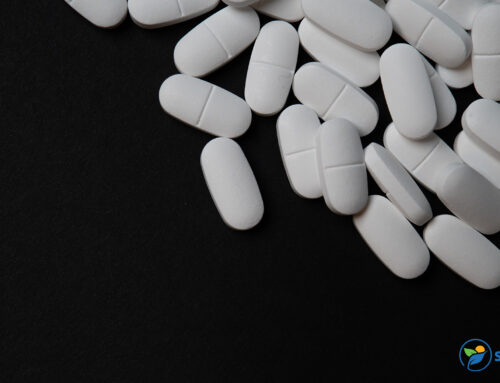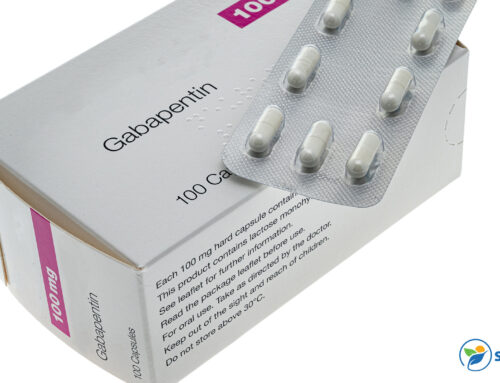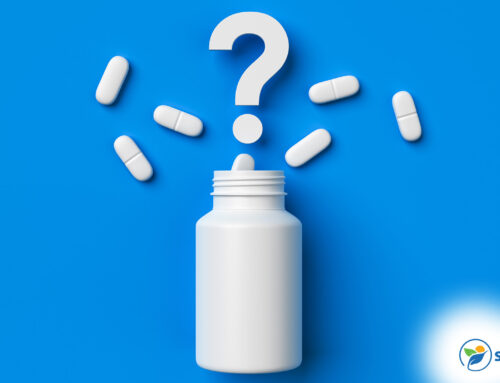Approved by the FDA in 2006 for treating opiate dependence and alcohol use disorder, Vivitrol (injectable naltrexone) is an extended-release injectable given to patients once a month. Identified as an opioid receptor antagonist, Vivitrol blocks the effects of opioids like heroin or fentanyl. Consequently, people getting monthly Vivitrol injections won’t experience the euphoric “high” they once felt when abusing opioids.
Vivitrol is contraindicated for individuals who haven’t completed medical detoxification. This means if someone with opioids in their system uses Vivitrol, they risk overdosing on that drug. Since Vivitrol stops brain receptors from accepting opioids, the user may keep ingesting more of the opioid because they can’t achieve a high.
Only doctors with a license to prescribe and administer Vivitrol can legally provide this medication. Sometimes, this can make it difficult to find Vivitrol shot locations in your area.
The Importance of Medication-Assisted Treatment
Vivitrol is often part of a medication-assisted treatment (MAT) program that includes therapy, relapse prevention counseling and aftercare support for opioid and alcohol abusers. MAT combines the use of FDA-approved medications with behavioral therapies to provide a patient-oriented approach to treating addiction.
The results of clinical trials involving Vivitrol found that this medication is effective in reducing cravings for alcohol or opioids and preventing relapse after detox. In addition, patients participating in a MAT program show significant improvement in overall life quality and ability to resist relapsing during and long after treatment.
MAT isn’t meant to be a quick fix for treating opioid or alcohol abuse disorders. Unless accompanied by cognitive behavioral therapy, addiction education and stress management counseling, MAT is less likely to be successful simply because substance abuse largely affects people with mental or emotional health problems that have never been addressed professionally.
Accessing Vivitrol Treatment: Who Can Prescribe Vivitrol?
Vivitrol requires training to correctly prepare this mixed suspension medication. Physicians must undergo suspension liquid education and receive a license to give monthly Vivitrol injections.
Medication-assisted treatment physicians who are licensed to dispense Vivitrol must also:
- Ensure patients have been opioid-free for a least 7 to 10 days before an injection
- Have experience with delivering Vivitrol as a gluteal (buttocks), intramuscular injection only
- Understand how to select a needle size proportional to the patient’s gluteal musculature (a variety of needles are included in each package of Vivitrol)
MAT doctors also have in-depth knowledge about possible adverse reactions to a Vivitrol injection. They’ll inform patients to call them or visit an emergency room if they experience severe pain at the site of the injection, hardening or lumpiness at the injection site or unusual swelling.
Opioid or alcohol abusers should never allow an uncertified health care professional to give them Vivitrol injections. In addition to making errors in preparing a suspension liquid like Vivitrol, uncertified physicians or nurses may not have enough experience with intramuscular injections. Imprecise injections into the buttocks could reduce the effectiveness of Vivitrol and cause painful adverse reactions.
The Limitations of Vivitrol in a MAT Program
Vivitrol is meant to stop alcohol or opioid addicts from using these drugs by preventing them from feeling the sedative, euphoric effects of either drug. However, if someone receives Vivitrol injections and relapses with opioids, they could suffer severe withdrawal symptoms that require emergency medical attention.
Vivitrol isn’t recommended for people with kidney or liver disease or those taking prescription opioids for a chronic pain condition. Vivitrol has been reported to cause hepatitis in patients with undiagnosed liver dysfunction.
Compliance with a Vivitrol MAT program is essential for its effectiveness. Missing one monthly injection can interfere with the ability of Vivitrol to block the effects of opioids, resulting in relapse and re-addiction.
Can You Get a Free Vivitrol Shot?
Vivitrol injections aren’t free, but some people may receive help paying for Vivitrol treatment. The makers of Vivitrol offer a co-pay savings program that covers as much as $500 per month of deductible or co-pay expenses for qualifying individuals with a Vivitrol prescription.
Patients using state or federal health care programs to pay for part or all of the cost of Vivitrol injections aren’t eligible for the co-pay savings program. However, patients who have no insurance, are paying cash or are covered by commercial health insurance will likely be eligible for Vivitrol’s savings program.
Where Can I Get a Vivitrol Shot?
Florida offers dozens of physicians and locations that provide Vivitrol injections. Individuals seeking medication-assisted treatment for their opioid or alcohol abuse disorder with Vivitrol must first fill out a specialty pharmacy form requesting information about their insurance coverage and addiction specifics. The pharmacy will then confirm the information is correct and consult with the individual about scheduling an appointment with a Vivitrol provider.
Sunlight Recovery can help anyone interested in receiving Vivitrol injections find a MAT provider and navigate complicated insurance coverage rules about paying for Vivitrol. Call today to speak to a Sunlight Recovery staff member for immediate assistance.
What Else Should I Know About Vivitrol Injections?
To be as effective as possible, Vivitrol must be combined with opioid or alcohol addiction treatment programs that include counseling, relapse prevention therapy and supportive aftercare.
Don’t use Vivitrol if you’re physically dependent on prescription opioid pain pills, heroin, fentanyl or other opiate substance. Detoxing is critical to avoiding serious health problems before starting on monthly shots of Vivitrol.
To ensure your system is opioid-free, your Vivitrol provider might give you a naloxone challenge test. This test involves injecting a small amount of naloxone into your arm to see how you react. People with opioids in their bloodstream will show signs of opioid withdrawal within a few minutes of receiving the injection. If this happens, you’ll be unable to receive a Vivitrol shot at that time.
Our admission lines are available 24/7. Sunlight Recovery also offers inpatient and outpatient recovery programs to accommodate all levels and types of addiction.






